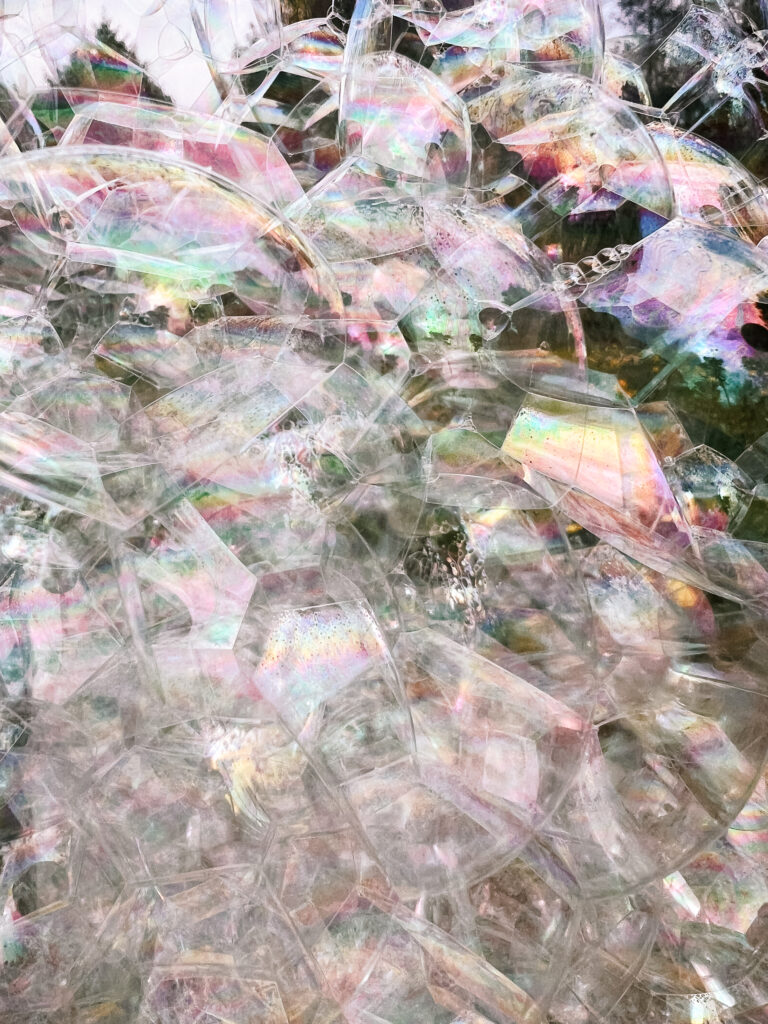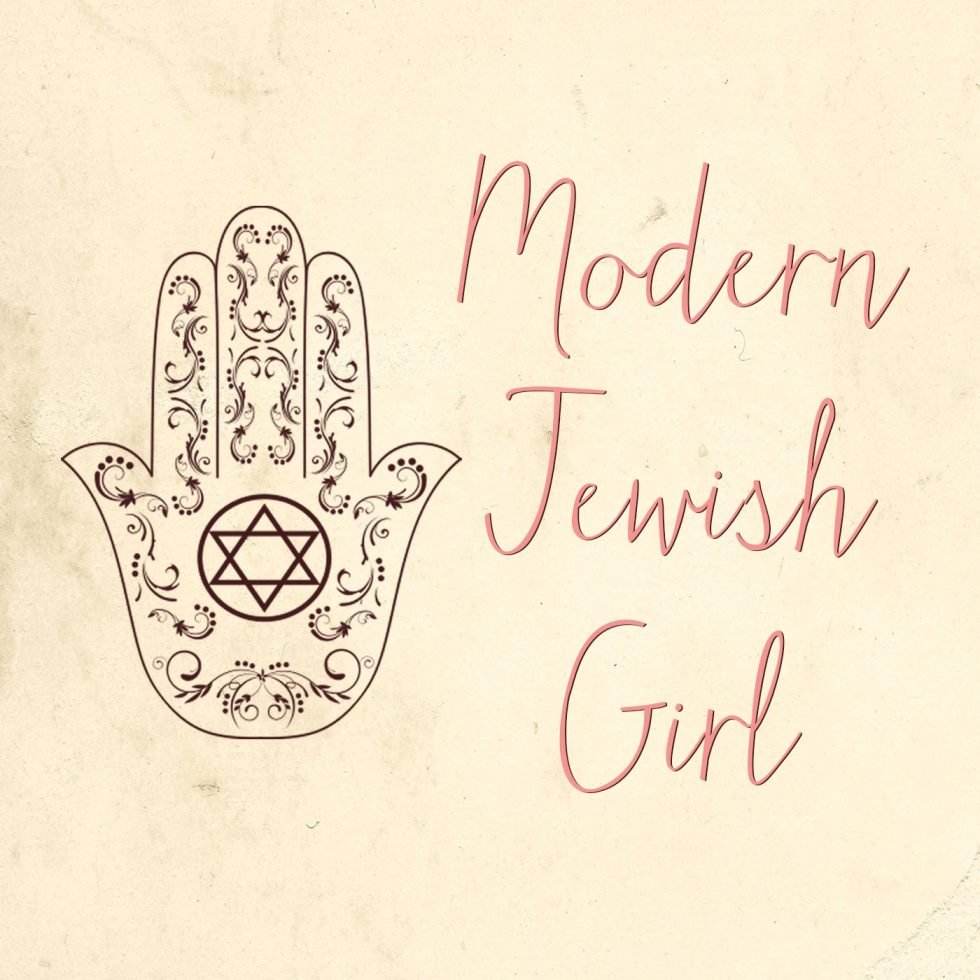When a holiday comes around, it’s easy to fall under the pressure to “feel” a certain way throughout it. We have a mitzvah to be b’simcha (happy) during Jewish holidays. So, if you’re stressed out, overwhelmed, or just kind of apathetic, it’s easy to feel guilty. (Hello, Jewish guilt!)
While it’s important to strive to be our best self, I’ve also learned that putting any sort of pressure on yourself to feel something specific is completely detrimental to the cause. It does the opposite. Instead of getting closer to feeling great, I have this internal tension that makes me feel so much worse.
One thing I learned this year from the brilliant speaker Charlie Harary was to take a lesson from good old matzah. On his podcast, Unlocking Greatness, he explains matzah just shows up as it is. It’s flour and water. It’s not trying to be anything it’s not. No one is taking cute Instagram photos of it (unless, you know, they do it up in a certain way). It just is.
We also just have to be who we are. Nothing is better than authenticity and staying true to yourself. Then, when you let yourself just be, and give space to do that, you feel SO much better as a result.
This year, by letting myself be, I actually came away with some life-changing reflections. They’re ones I knew I needed to jot down not only to remind myself of them when they inevitably start to fade, but to share just in case they can help anyone else out there, too.
1. Hashem (not you) is running the show.
One thing that really sunk in during this year’s Passover Seders was that I have way less control than I think I do. I don’t even realize how much I try to control situations sometimes. I’m constantly worried about my son and his safety and health. I’m usually thinking and anticipating that something bad is going to happen. I then fall prey to stress and unhappiness because I’m trying to go overboard to control a situation and obsess over it when, in reality, there’s nothing I can do.
I found an old Pesach notebook over the holiday from a Torah class I took eight years ago. In it, I wrote, “Hashem is running the show. I just work here.” Then, below that, I wrote, “So you don’t have to worry so much.” I needed that lesson just as much today.
In Egypt, Hashem was the one Who created all the plagues and Hashem was the one Who HIMSELF took us out of slavery. We can do what we can, but ultimately, everything comes from G-d. You just have to do your best, but once you do, Hashem decides what happens. When I really think about that, I feel a release. I don’t have to take on the job of running the world. He’s doing that already.
2. You don’t need all that extra chametz.
Now, don’t worry, I’m not talking about challah here. I love my Friday-night slices just as much as the next person. But, in cleaning this year, I really tried to think about what excess in my life I want to remove. Chametz is compared to the ego—the “fluff” that’s on top of our true essence.
I realized that a lot of the time, I let my ego do the talking. I let it get in the way of who I truly want to be. For example, if my husband says our son just did something cool or new, I’ll say, “Oh, I know he also did that yesterday.” The same with his babysitter. I don’t want to feel like a bad mother and that I’m missing out on something. I want to be secure in knowing I’m his mom, and that person is irreplaceable in his life. I’m good enough as I am, and I don’t need to overcompensate for anything. I want to internalize that who I am and how I am is good enough.
In my interactions now, I try and notice when I’m letting the ego get in the way. That mindfulness alone is a game-changer, because even if I don’t always get it right, I am aware of how I can do things differently next time.
What’s your extra chametz? Just noticing it is already a big first step in taking it down.
“I don’t have to take on the job of running the world. He’s doing that already.”
3. There are many false realities around you.
Confession: I’m addicted to Instagram. I knew things were inching in that direction for a while when I would get my screen-time notifications or have that little alert pop-up saying I was reaching my self-imposed Instagram “time limit” and would promptly hit “ignore” and continue scrolling through stories.
It wasn’t until after Pesach, when I felt such clarity around me, that I really noticed the shift going back. It wasn’t a certain person that had been bringing me down; it was the mass amount of content I was consuming about other people’s lives. That was my downfall. I would then feel worse about myself just based on knowing what so many other people were doing and how they were seemingly living their lives. I would also compare my account’s metrics to others. This person had more followers or cooler stories or posts. It was toxic.

During Pesach, I really felt — and internalized — that the only true reality is Hashem. Everything else is external. Instagram numbers were created by a human. I don’t need to fall into that. There are so many amazing things that come out of social media — and I’m not downplaying them — but comparing yourself to others way more easily unfortunately isn’t one of them. So, I deleted it from my phone. (At least for now, to see how I feel!) I’ll only re-download it for a minute when I really need it for this site and can’t get what I need from the web.
In Rabbi Aba Wagensberg’s Pesach dvar Torah (Torah lesson) (you can subscribe to his email list here), he talks about the importance of discovering Hashem from the top down. I’m oversimplifying this because he used really deep and esoteric Kabbalah stories in his writing, but essentially, the miracles coming out of Egypt are how we need to see Hashem. Hashem is One. Hashem creates miracles and that is where a Jew needs to find faith. He says that most people try to find Hashem from the bottom up, aka through things He’s created like the sun, the moon, the earth, other people, animals, etc. Getting sucked in there can create false idols. Such people never make it to the top.
For me, I realized Instagram was one of those false idols. I needed to get back to the Source.
4. You can’t do everything or be everyone.
This one comes from the incomparable Rabbi Jonathan Sacks, zt”l. In his essay from Parashat Tzav (you can read it on his website here), he talks about certain people in the Torah who had a deep internal struggle. What made them great was saying no to what was wrong and yes to what was right. This wasn’t always so clear in the moment, though.
“To say ‘yes’ to who we are, we have to have the courage to say ‘no’ to who we are not,” he writes. Sometimes, like with the Instagram example, I can get lost in who I want to be. I feel like I need to be an amazing cook, have a perfect home, be an amazing mom and have a thriving career, just to name a few areas where I feel a pull. I can’t be all these things all at once, of course.
I’m also not anyone else. When viewing so many other lives, it’s easy to even subconsciously think you want to be like them. I have to have the courage to say, “No, I’m not them and am never going to be them. But I am me, and with that comes so much goodness.” Then, focusing on my own strengths and doing the will of Hashem to bring them out in the world is how I create a stronger connection with Him and feel so much better about who I am.
When we do say yes to who we are and stay true to our own morals and values, Rabbi Sacks says we emerge less conflicted than we ever were before.
Did you learn anything about yourself this Pesach? Share with us in the comments.










[…] 14, her disorder dipped to an all-time low. “It was Pesach and I was purging every single course. My mom was like, ‘Why does she keep going to the […]
[…] we’ve been counting up the days during the period called the Omer, which takes place between Pesach and Shavuot. Every day we get just a little bit closer to commemorating one of the holiest days on […]
[…] guys, Pesach is officially behind us which feels crazy to say because it takes up nearly a whole month in prep, […]